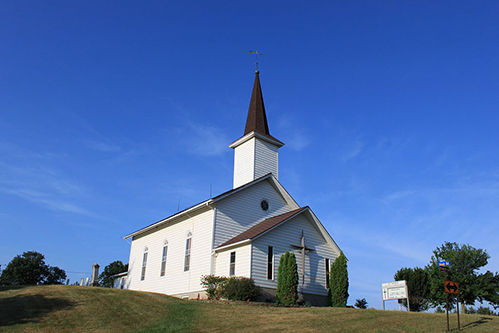Religious liberty needs constitutional defense
SB1146 reminds Christians the importance of continuing the debate on religious freedom.

wikimedia.org
November 29, 2016
Those associated with religious universities in California suddenly found themselves in the forefront of a nationwide conversation on religious freedom after Senate Bill 1146 emerged in the state legislature. As the universities hurried to respond, the need for a fresh articulation of the importance of religious freedom became apparent. Though SB 1146 has come and gone, the debate surrounding the extent to which religious freedom should be protected continues to rage on.
respecting the establishment of religion
For a real understanding of religious freedom in America, one must look to the Constitution’s most definitive statement on religion—the First Amendment. The relevant text reads, “Congress shall make no law respecting the establishment of religion, or prohibiting the free exercise thereof.” While this appears to be brief and straightforward, the government’s subsequent relationship with religion has been anything but clear. In fact, the legal philosophy around what constitutes “respecting the establishment of religion” has become so complicated that even a member of the Supreme Court would admit it. Justice Clarence Thomas decried the whole area of law to be “in shambles” and wrote in a legal opinion that their “jurisprudence has confounded the lower courts and rendered the constitutionality of displays of religious imagery on government property anyone’s guess.”
Confusing as it may be, the need for the federal government — largely through the Supreme Court — to rule on issues related to religious liberty is not going anywhere. So, how do they judge? The common framework when ruling on these issues is to view the Free Exercise and Establishment Clauses as protections against the extremes. If the government ebbs too far towards religion, the Establishment Clause comes in and prohibits it, while the Free Exercise Clause safeguards any time where the government flows too far towards a position hostile to religion. Former Justice Lewis Powell explains this position by writing, “This Court repeatedly has recognized that tension inevitably exists between the Free Exercise and the Establishment Clauses. . . and that it may often not be possible to promote the former without offending the latter.”
But must the two clauses work against each other as it has so often portrayed? A counter interpretation of the First Amendment challenges this assumption by not demanding the government walk the fine line between the two clauses, but instead see the Establishment and Free Exercise clauses working in harmony with one another, furthering the common pursuit of a robust sense of religious freedom.
religion and morality are indispensable supports
Lending support to this view is the esteemed role religion played in the eyes of the country’s founding fathers. George Washington states in his farewell address, “Of all the dispositions and habits which lead to political prosperity, religion and morality are indispensable supports.” John Adams also argues for the necessity of religion within American society during his presidency by writing, “Our Constitution was made only for a moral and religious people. It is wholly inadequate to the government of any other.” With this in mind, it is warranted to think that instead of trying to limit religion, the Establishment Clause of the First Amendment was in fact written to promote religious freedom by eliminating the possibility of one religion rising to power and suppressing all others — a reality in Europe that was certainly on the minds of founding fathers.
While determining how far religious freedom can be protected in our society is a question that must be continually addressed in today’s changing society, it is important for everyone engaged in the issue to understand that religious freedom was historically understood not as something to be merely tolerated, but instead a pivotal foundation for the health and continued flourishing of society. Despite this, some still see the religious clauses in the Constitution as a relic of the past and useless for today’s society, which is why one must also be able to argue for religious freedom without relying on the law.






